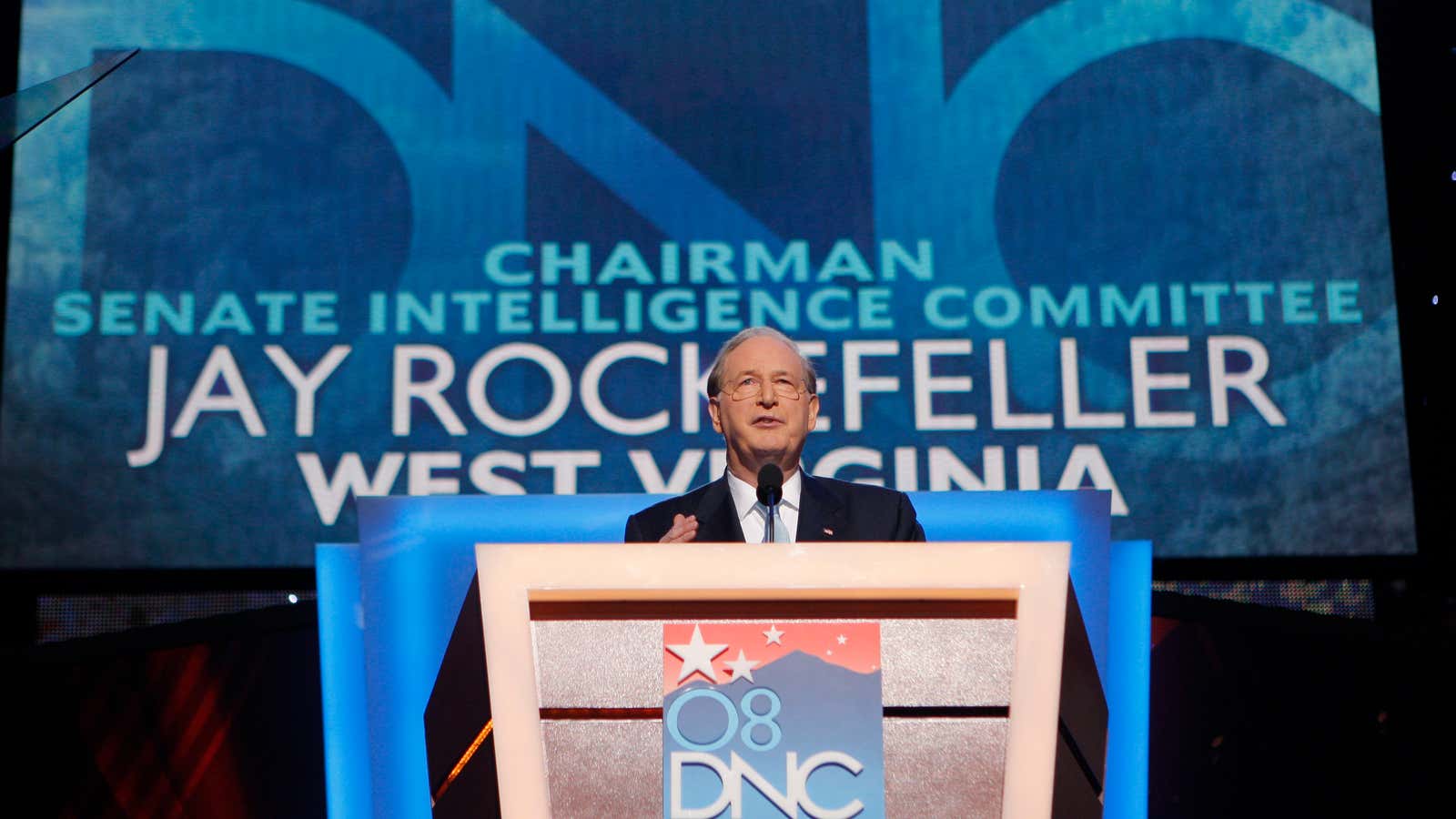Later today, US senator Jay Rockefeller will introduce legislation designed to encourage growth of online video platforms and prevent cable companies from engaging in what he claims is anti-competitive behavior in the US. The West Virginia Democrat, who chairs the Senate commerce, science and transportation committee, says the “Consumer Choice in Online Video Act” builds on similar legislation that promoted the growth of satellite TV in 1992.
“My legislation aims to enable the ultimate a la carte—to give consumers the ability to watch the programming they want to watch, when they want to watch it, how they want to watch it, and pay only for what they actually watch,” Rockefeller said in a prepared statement.
The bill would:
- Bar cable, satellite, broadcast, and large media companies from engaging in anti-competitive practices against online video distributors: Earlier this year, it was reported that Time Warner had signed contracts with networks, preventing them from selling their content to online competitors. Rockefeller says his legislation would put “reasonable limits” on this practice. It would also explore ways for online video distributors—which includes streaming services like Netflix, Apple and Amazon—to negotiate to carry broadcast television content.
- Limit the ability of broadband providers to degrade competitive online video services: Netflix (and other online video services) is delivered into homes over pipes that are owned by its direct competitors—cable companies and telecom carriers. “Net neutrality” principles should, in theory, force internet service providers to provide access to all content on equal terms. Despite this, there have been reports about a degradation of Netflix streaming for Verizon, Comcast, and Time Warner Cable customers. The bill seeks to address this, but specifics as to how are light at this stage.
- Empower consumers with new truth-in-billing protections for broadband Internet service: The bill calls for “clear and understandable” terms and conditions on cable bills, so consumers can make better decisions about their preferred packages and speeds. It would also give the Federal Communications Commission the ability to monitor broadband billing, to ensure billing practices aren’t anti-competitive.
The legislation would allow online video companies to voluntarily “opt-in” to be classified as multi-video programming distributors” (MVPD), which would give them greater access to content on fair terms the way that satellite providers already do, but would also possibly lead to greater regulation that these services do not want, such as forcing them to carry local channels, which might be logistically complicated and costly.
It’s not clear how the legislation would encourage the likes of HBO to begin selling content directly to consumers, an issue that has frustrated many. Also, its chances of success remain an open question: the powerful cable lobby will surely respond. But at least Washington might have more sway than frustrated American consumers.
